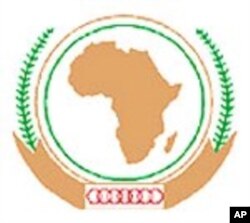Deliberations are underway in Ethiopia’s capital Addis Ababa ahead of Sunday’s 14th Ordinary Summit of the African Union heads of state.
The theme of the summit is “Information and Communication Technologies in Africa: Challenges and Prospects for Development”.
Kenyan-born Calestous Juma who is director of Science, Technology and Globalization at Harvard University’s Kennedy School said although most African countries had been saddled with inadequate information technology, the situation is improving gradually.
“Up to now information has been probably the most costly resource on the continent. But this is changing very fast. We’ve seen a dramatic impact that mobile phones have had on Africa economic scene as well as political scene. But with the arrival of fiber optic cable, Africa now has this possibility of accessing high speed internet,” he said.
Juma said accessing high speed internet would enable African countries to develop major contents, access the content that is available in other countries like educational materials that would otherwise not be available free of charge.
He called on African leaders who will be meeting in the Ethiopian capital beginning this Sunday to focus on developing new policies on how to tap the high speed internet.
Juma said African countries and governments have the political will to implement the proposals on improving their information and communication technologies.
“What they need to do is learn from other countries that already have broad band policies. For example, they need to focus on mobile education, mobile health, and modernize government infrastructures by digitizing all the content they have in government offices. So the political will exists, but they need to invest in building up the capacity to do it,” Juma said.
Some experts have suggested that Africa’s struggle to manage its many socio-economic problems has played a role in further hindering the continent’s access to information and communication technologies.
Juma said information and communication technologies are the foundations by which Africa can quickly meet its development needs.
“I would argue that Africa’s inability to solve basic like provide low cost medical care, expand agricultural production is linked to in fact poor access to information. Information will make it easier for Africa to grow better food because the availability of information will enable farmers to determine precisely when to plant their crops,” he said.
He also said the availability of information will enable health care providers to use portable diagnostic tools linked to mobile phones to bring the hospital to patients instead of the other way round.
Juma said a computer without electricity is useless. As such he said African countries should do more in developing other complementary infrastructures, especially energy.
“We should start to explore the potential of harnessing wind power, hydro power and other forms of energy. If you look at the African continent for example, the Horn of Africa has the highest wind potential in the entire continent. So we should be thinking about how to harness that resource,” Juma said.
He said Africa should also look into harnessing renewable energy like solar energy to power computers, mobile phones and other technologies.
Juma said the quality of communication to Africa by phone has been poor because such technology depends on satellites. But he said the quality of communication would improve dramatically when Africa begins to use fiber optic cables that are being laid at the moment.




